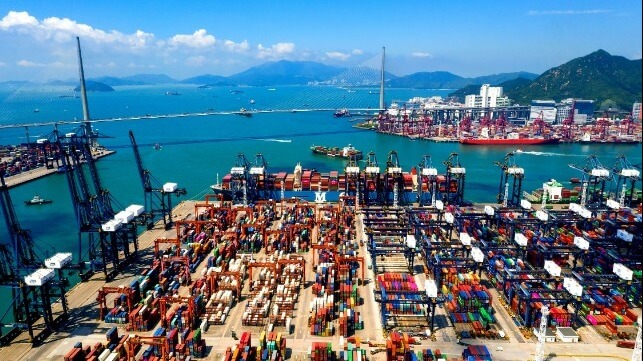KPI OceanConnect Talks Marine Fuels Landscape in Asia

[By: KPI OceanConnect]
Susanna Lai, Managing Director at KPI OceanConnect Hong Kong, shares insight on Asia’s marine fuels landscape, and how the company is navigating shipowners through the next market transformations.
Covid-19 measures continue to impact the marine fuels supply chain across Asia, but the reality is that no two ports have faced the same effects.
For Hong Kong, which is one of the world's busiest and largest container ports in the world, the demand from container vessels has, and will continue to remain strong, despite the ongoing challenges of the global pandemic.
However, demand from other segments has not remained as high. We’ve seen a total tonnage reduction of approximately 30-40% since 2018, largely due to restrictions on bunker-only calls and strict quarantine policies by the government of Hong Kong. This has resulted in neighbouring ports, such as Singapore and Zhoushan, seeing higher volumes and more visitors.
Once Covid-19 restrictions ease some more, we expect Hong Kong’s marine fuels market will return to pre-pandemic levels. Price will always be a top priority for shipowners and operators, and there are structural reasons why Hong Kong has been so competitive for so long.
Over in Singapore, it’s a slightly different story. Despite the rise in bunker prices rise due to growth in crude prices, there remains strong spot demand and tight availability of cargoes and barges. We have also seen shipping’s biggest marine fuels hub start to make its mark on the green transition with more deliveries of biofuel and LNG at the port.
It’s hard to remember the last time I had a conversation with a shipowner that didn’t involve some discussion about decarbonisation. That interest in sustainability is translating into an urgent need to understand what’s feasible for their fleets, and how to get the future fuels they’ll need to power them.
In a market that continues to change and faces complexities ranging from fuel choices to supply options, adopting a step-by-step approach to decarbonisation enables more frequent, in-depth evaluation and – if necessary – course correction.
With a strong knowledge of the marine fuels mix, global expertise, and a long history of helping clients to navigate market transitions, we have proved incredibly valuable to them. Most recently, with our ability to help our shipowner and operator clients offset the carbon on their marine fuels and their cargoes.
To ensure we remain at the forefront and support our growing business in Hong Kong, China, Singapore and across Asia, we’re strengthening our team of highly experienced people by focusing our efforts on recruiting this year. This will enable us to continue applying our innovative, people-first approach and support our partners through this and every market transformation.
The next decade is going to be an exciting one for our industry, and it’s clear to me that there will be many major changes. The fuels mix in Asia will change, and there will be far more transparency going forward. Shipping has a huge opportunity in the coming decades to become a green fuel pioneer, and we’ll be here to help them every step of the way.
The products and services herein described in this press release are not endorsed by The Maritime Executive.
